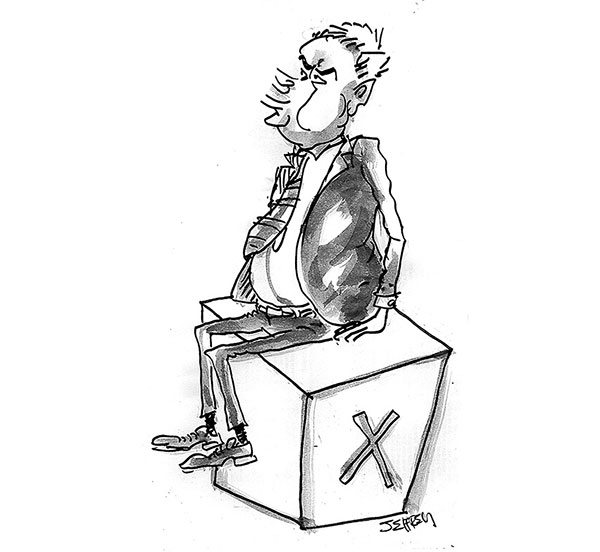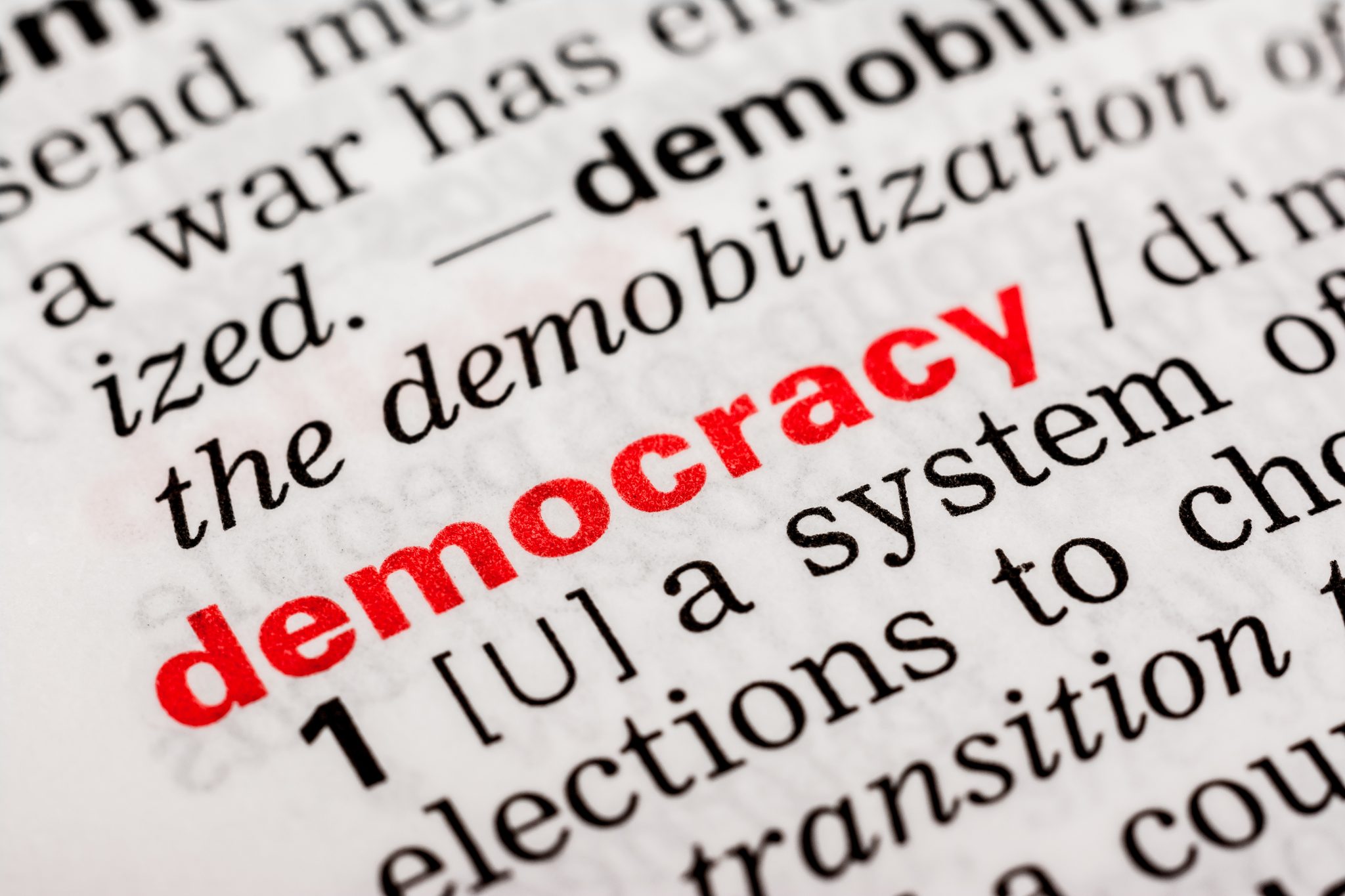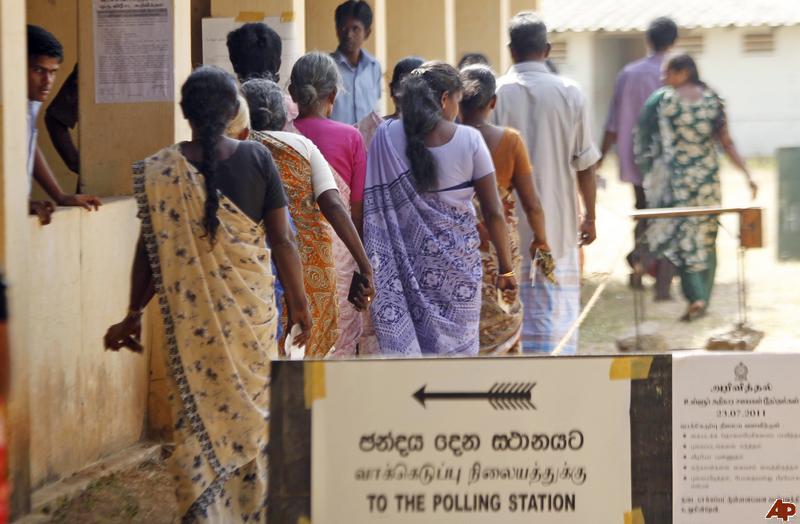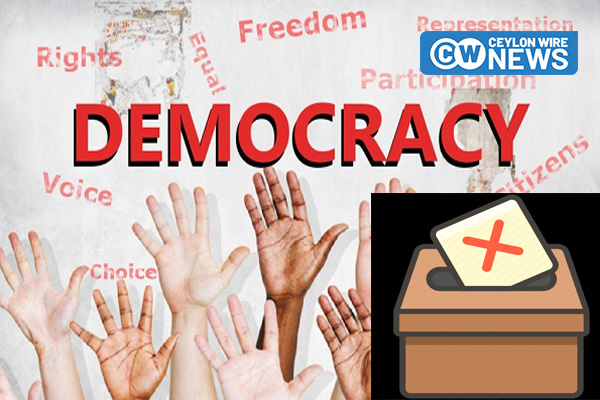The interest in the electoral process has suddenly been sparked off by news that the government is contemplating holding a referendum on abolishing the executive presidency. The reported concern is that no candidate at presidential elections to be held next year will achieve the 50 percent mark to win the presidency at the first round of elections itself. This occurred in neighboring Maldives last month, where no candidate at the presidential election reached the 50 percent mark at the first round of elections. Since the first presidential election in Sri Lanka in 1982 every succeeding election has been won on the first round of counting. Going to a second round of counting would be a new experience, but the constitution provides for three rounds of counting to get the winner, and if no one reaches the 50 percent mark, the candidate with the highest number of votes will be declared the winner.
Apart from the proposal to abolish the presidency on this questionable basis, there are also plans to change the electoral system. The Minister of Justice Dr Wijayadasa Rajapaksha is reported to have said the reforms envisaged will see the election of 160 members to Parliament under the first-past-the-post system. The remaining 65 members from a 225-seat Parliament would be represented by the National list and District list depending on the number of voters under the proportional voting system. Both proposals present issues of epic proportions. They have been canvassed in the past, both individually and jointly, and by ad hoc means as well as part of systematic efforts to devise a new constitution as occurred in 2000 and again in 2015. But on each and every occasion there have been objections and challenges from different political parties and interest groups, and the electoral reform process has stalled.

There are two major elections on the near horizon of the election calendar that could be negated if the proposed constitutional maneuvering is successful. The first is the presidential election which is due be held before October 2024. The second are the parliamentary elections which are due by August 2025. The problem for the government is that it needs to ensure its victory at the presidential election if it is to carry on to the full term of the parliament. A loss at the presidential election would put the government into a very vulnerable position. It is likely that a new president would immediately dissolve parliament and call for early elections rather than let the present parliament continue for its full term until August 2025.
GOVERNMENT’S APPREHENSION
The news about the bid to do away with the executive presidency and to change the electoral system in a hurry may be in the nature of exploratory statements to test the waters before plunging into them. The development of the concept and process therefrom have so far not been transparent and little is known beyond what has been reported in some news media. However, the possibility that the government is contemplating going ahead to ascertain the views of the people through a referendum, which is bound to be costly, seems to have reactivated the Election Commission. Election Commissioner R.M.A.L. Ratnayake has said that the fresh initiative had been taken as another effort to ensure that the long-overdue local council elections were conducted soon. He said they had also taken into consideration that the government’s financial position had improved now and that some of the court rulings related to the local council elections were due.
It seemed that the Election Commission had fallen to its nadir when a decision to cancel the nominations was unanimously agreed upon by the Ministerial Advisory Committee on Public Administration, Home Affairs, Provincial Councils and Local Government on September 20. This was after repeated requests by the Election Commission to the government treasury to release the funds needed to conduct the elections were ignored. The basis on which the elections were postponed was that the country did not have sufficient money to spend on conducting elections due to the economic crisis the country. The government also went a step beyond in its decision not to hold the elections when it ignored a supreme court ruling that the funds allocated in the national budget for local government elections should not be withheld. The delay in holding the local government elections forestalled a defeat that would have delegitimised the government at a time when it was trying to rescue the economy.

The government’s decision to ignore the supreme court ruling regarding the conducting of elections that had fallen due and were overdue indicates a democracy that is going off course. It is to be hoped that a similar disregard for the courts will not be shown by the government. The Election Commission’s attempt to get reactivated after its enforced period of hibernation and to hold the local government elections is a positive sign that the institutional integrity of certain core mechanisms remains intact. This would provide a positive feedback loop so that other government agencies could also act with similar creativity and integrity when the time is opportune and they are called upon to deliver. This would be particularly true of the judiciary which ought to be the equal of the executive and legislature in a well-functioning democracy.
EXPIRED MANDATES
The interest of the government in conducting a referendum on the abolition of the executive presidency at a time when it has refused repeatedly to hold pending local government and provincial council elections gives rise to the surmise that it is the nature of a political strategy. Safeguarding the present parliament from early dissolution by a new president is not going to be an easy task. Neither is abolishing the presidency going to be easy either. The executive presidency is not only a central feature of the present constitution, the president is insulated from the “whims and fancies” of parliament as the first president of Sri Lanka, J R Jayewardene once opined. If it is abolished there would be a question about the future of President Ranil Wickremesinghe who is currently insulated from the whims and fancies of the parliamentary majority.
The president also has a central role to play in the provincial council system as the appointing authority of the governors of the provinces. It may be no coincidence that parallel to the news emerging of a possible move to abolish the presidency, the constitutional committee appointed by former president Gotabaya Rajapaksa to draft a new constitution convened its own meeting. Speaker after speaker at the occasion spoke about the dangers posed by the provincial council system and the 13th Amendment to the unity and sovereignty of the country. The irony is that while the government is seeking to abolish the presidency, the constitutional committee appointed by the former president has advocated a further strengthening of the presidency. The indications are, therefore, that the abolition of the executive presidential system will be fraught with controversy.

The government’s plan to change the electoral system at the present time is also unlikely to materialize. The proposed new system is detrimental to the election of ethnic and religious minorities who will not wish to give it their support. It also evokes the nightmare possibility of a replay of the process that led to the provincial council elections scheduled to be held in 2017 to be indefinitely postponed even to the present day. Shortly before those elections were to fall due, the government proposed to introduce some positive reforms to the election law, including bringing in a women’s quota. But once the prevailing law under which elections to the provincial councils had been repealed, the government failed to enact the reformed law. This has led to the provincial councils being in a state of limbo ever since. A similar situation arising in the case of parliament would be a disaster for democracy in the country as it would have neither a president, parliament, provincial councils or local government authorities elected by the people. Instead it will have government leaders with expired mandates.
– Dr. Jehan Perera (Executive Director of Sri Lanka National Peace Council









